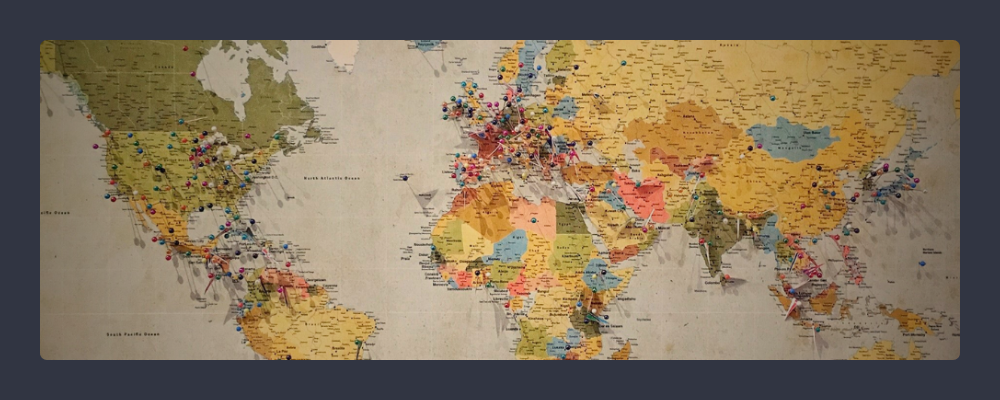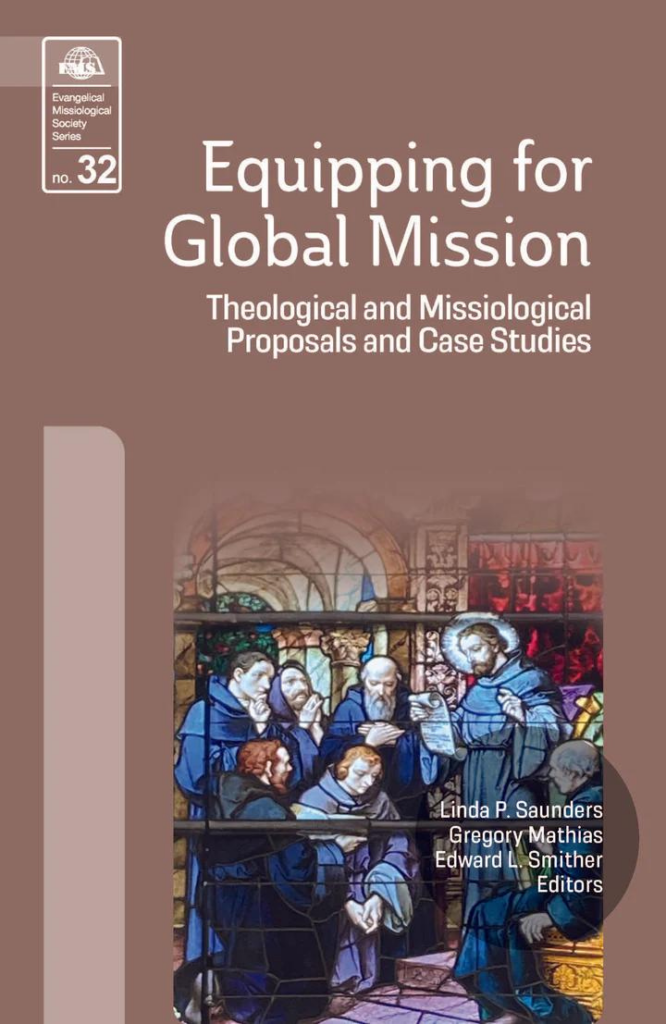
Mike Urton currently serves as the team leader for Immigrant Ministries Chicagoland. He has worked among the Muslim and Muslim Background Believer population of Chicago for over two decades.
For those of us involved in the task of theological education for missionaries, it is not always easy to gauge our effectiveness. Especially after those we are training complete our courses, we can be left with questions surrounding the impact we have had and whether our efforts have prepared these missionaries for long term success in cross cultural ministry.
At the end of the day, we want to ask ourselves, have we trained our students well for the task to which they’re called? Luckily, some recent data can help give us a sense of what measures are important and in what ways does good theological training practically impact ministry effectiveness.
The recent volume of the Evangelical Missiological Society entitled Equipping for Global Mission: Theological and Missiological Proposals and Case Studies, published by William Carey Publishing puts forward two studies that explore the effectiveness of theological education for missionaries.
Below is a summary of each one along with a few reflections on the implications for our training efforts in the BibleMesh Institute.
Study 1: Missionary Education and Effective Great Commission Participation
The first study surveys 198 missionaries in evangelical mission organizations looking at their educational background, such as undergraduate and graduate schools attended and what degrees they received. Special attention was paid to missions and missions related classes taken by the participants, as well as the type of ministry they were doing.
They examine “how missionary preparation and education are related to missionary effectiveness, defined as activities that are closely associated with the Great Commission (Matt 28:18-20).”i They specify Great Commission (GC) activities as “sharing the gospel, baptizing, teaching the Bible, and training others to teach.”ii
The study found that there was a correlation between the degree of theological education and the amount of GC activities performed. This was especially true for missionaries who attended evangelical Christian universities for some or all of their undergraduate education. Those possessing a MDiv had the highest participation in Great Commission activities, however having any seminary degree resulted in greater GC activities over those who had no seminary degree.
The study found that there was a correlation between the degree of theological education and the amount of GC activities performed.
One of the more significant findings for our purposes in BibleMesh Institute was that online courses were just as effective as traditional classroom courses for missionaries participating in GC activities. Also, there were no significant differences between courses taken before departing and those taken after deployment to their field of service.
The authors of the study suggest several possible reasons for these encouraging findings. The first is “that evangelical universities instill the values and provide training experiences that contribute to effective Great Commission activities, as well as provide knowledge that is useful for fruitful ministry.”iii
Regarding graduate education they surmise that it provides the necessary competencies for maximizing gospel sharing opportunities. They conclude that those providing theological education in North American Christian Universities “can rest assured that their ministry of training future overseas missionaries is bearing fruit and is contributing to the accomplishment of the Great Commission.”iv
The BibleMesh Institute specializes in theological training for missions agencies, and missionaries.
Learn more about our missionary certificate track.

Study 2: Future Missionary Training
The aim of this study is to identify emerging global issues and the impact that they have on missionary training, so that this training can be strengthened. To achieve their goal, the authors “conducted a qualitative, convenience sample survey of thirty mission leaders from five continents, including a mix of academic missiologists, missionary trainers, and mission agency leaders.”v
From this sample they identified six issues, three of which are the most pertinent for our purposes. They are maximizing digital learning and remote ministry possibilities, raising awareness of the need for missionary training, and strengthening biblical understanding.
Digital Learning and Remote Ministry
The study offers both positive and negative outcomes for digital learning. Among the positive aspects are missionaries not having to leave the field, the ease of forming online communities, training being delivered closer to the time it is needed, offering it at lower costs, fitting the needs of part-time missionaries better, and Christians in at risk situations can partake in the training without meeting face to face.
The negative effects involve “increased digital distraction, increased screen time, increased isolation and loneliness, and thus increased mental health risk, reduced attention span, and decreased time spent with the local people.”vi Thus, the authors recommend a balance of online training with offline training.
Raising Awareness for Missionary Training
Several of the respondents reported the increasing difficulty of motivating missionaries to get the training they need. The authors note that missionaries need training in both contextualization and theological competence. Providing a clear vision for training and making mission education flexible are two ways that participants suggest motivating missionary candidates to receive training.
Strengthening Biblical Understanding
Another issue that those in the survey shared was that new missionaries usually come with a weaker theological foundation than in generations past. This is why many of the participants in this study called for strong biblical foundations to be restored in missions training, so that missionaries can “think biblically and theologically to be able to address the complexity of contextualization, globalization, new ecclesial forms, and religious pluralism.”vii
The authors offer three suggestions for how missionary training should change. First, it should be a lifelong process, not just for pre-field candidates. Second, training should become more dynamic involving mission agency and seminary partnerships to train missionaries. Third, changes to missionary training must be done carefully balancing what has been done in the past with the need to meet current realities.
Reflections
Both studies are well worth reading for those training missionaries in theological education, but what are some specific implications for BMI teaching fellows? First, we should be encouraged. As these studies bear out theological education for missionaries truly does have an impact on the effectiveness of their ministry, even when that training takes place online.
Second, we should be challenged. Seeing that many missionaries are arriving on the field lacking robust theological education should inspire us to equip our own students well, while discussing with mission leaders in our networks the necessity for missionaries to have theological depth.
Lastly, we should be intentional about helping those we are training to integrate what they are learning with practical ministry opportunities. In an evangelism course that I facilitate, the students must develop and implement an evangelism strategy in their current context for their final project. Thinking of creative ways to help students apply the knowledge they are receiving in our courses will not only help them to retain it, but also will help them to develop the aptitude for contextualizing what they are learning for their current or future place of service.
Footnotes:
i Kenneth Nehrbass, David R. Dunaetz, and Joyce Jow, “Missionary Education and Effective Great Commission Participation: Does Missionary Education Work?” Equipping for Global Mission: Theological and Missiological Proposals and Case Studies, eds. Linda P. Saunders, Gregory Mathias, Edward L. Smither Evangelical Missiological Society Series, no. 32 Pasadena: William Carey Publishing (2024): 36
ii Ibid., 32
iii Ibid., 44
iv Ibid., 48
v Craig Ott and Minwoo Heo, “Future Missionary Training: In Light of Current Developments and Challenges,” Equipping for Global Mission: Theological and Missiological Proposals and Case Studies, eds. Linda P. Saunders, Gregory Mathias, Edward L. Smither Evangelical Missiological Society Series, no. 32 Pasadena: William Carey Publishing (2024): 51
vi Ibid., 57
vii Ibid., 60

